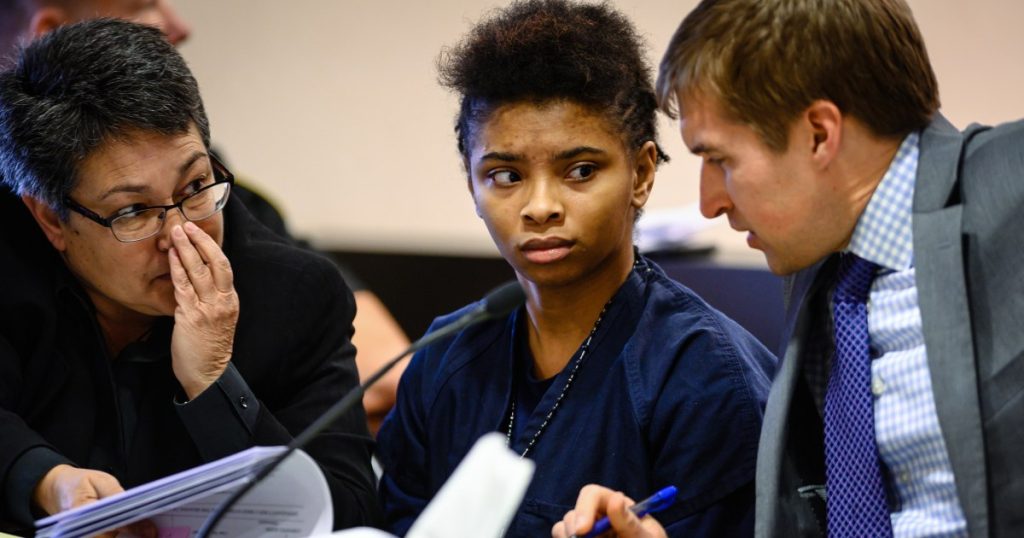Chrystul Kizer, a 24-year-old woman, was sentenced to 11 years in state prison after pleading guilty to second-degree reckless homicide in the killing of a man she said trafficked her when she was a teenager. She was sentenced to 11 years of confinement followed by five years of supervised release. Kizer entered a guilty plea for reckless homicide in May to avoid the risk of a potential life sentence at trial. She must submit a DNA sample and attend a restitution hearing at a later date.
Kizer was 17-years-old when she was accused of killing Randall Volar III in 2018 before setting his body on fire. Initially charged with first-degree intentional homicide, Kizer argued that she was legally allowed to kill Volar because he was sexually trafficking her. She had met Volar when she was 16 and alleged that she had been sexually abused by him multiple times. Prosecutors confirmed they were working on a case against Volar at the time of his death, but said Kizer didn’t indicate she was being trafficked at the time of the killing.
In a 2019 interview with the Washington Post, Kizer detailed the events leading up to Volar’s death, stating that she went to his home with a gun given to her by her boyfriend for protection. After a struggle with Volar, who allegedly tried to sexually assault her, Kizer shot him twice before setting his body on fire and fleeing in his car. District Attorney Michael D. Graveley accused Kizer of premeditated murder, alleging she planned to steal Volar’s BMW. The Wisconsin Supreme Court ruled in her favor, allowing her to argue self-defense under a state law for trafficking victims.
Kizer was released on $400,000 bond in February but violated the conditions by fleeing the state. She was apprehended in Louisiana two weeks later and returned to Wisconsin. Graveley expressed relief after her sentencing, stating that the case was closed without the uncertainty of a trial. Kizer’s legal team did not immediately respond to requests for comment on the sentencing. The case has sparked conversations about the treatment of trafficking victims in the criminal justice system and the need for reforms to better protect and support them.
Kizer’s story highlights the complex dynamics of sexual exploitation and violence faced by many young individuals, particularly those who are victims of trafficking. Her case sheds light on the challenges survivors encounter in seeking justice and the limitations of legal mechanisms in effectively addressing their experiences. Kizer’s sentencing raises questions about the appropriate response to victims who resort to extreme measures to escape abuse and exploitation, as well as the need for more comprehensive support services for those who have experienced trafficking.
Moving forward, advocates are calling for greater recognition of the trauma and vulnerabilities experienced by trafficking survivors, as well as the implementation of trauma-informed approaches in legal proceedings involving these individuals. By centering the voices and experiences of survivors like Chrystul Kizer, policymakers and stakeholders can work towards developing more effective strategies to prevent and respond to trafficking, while upholding the rights and dignity of those who have been victimized.


